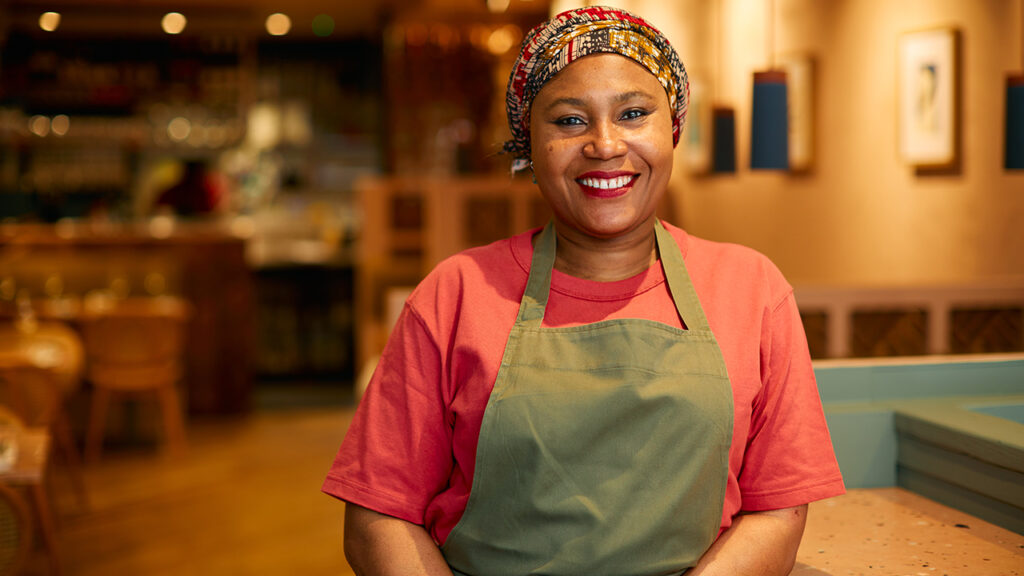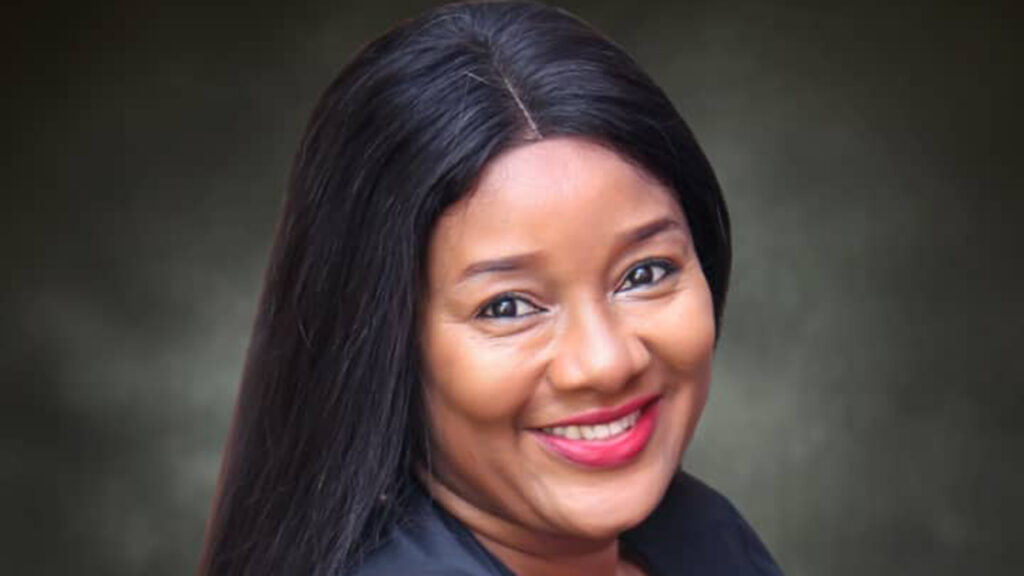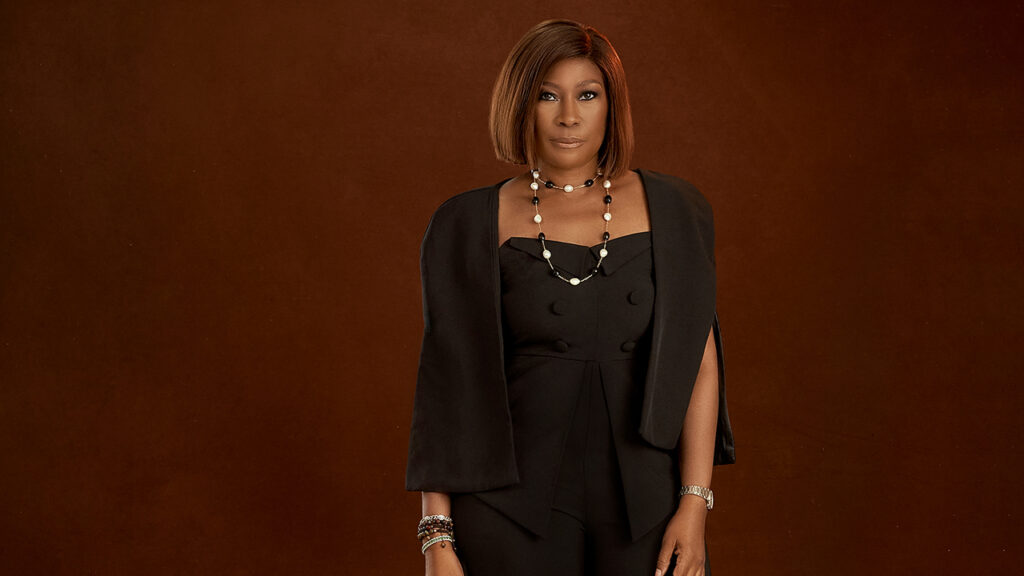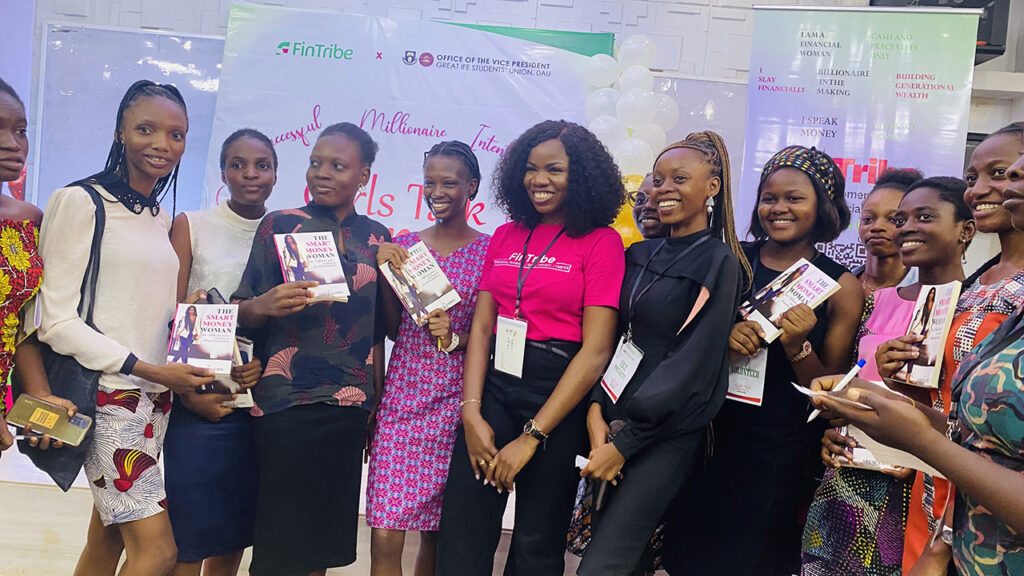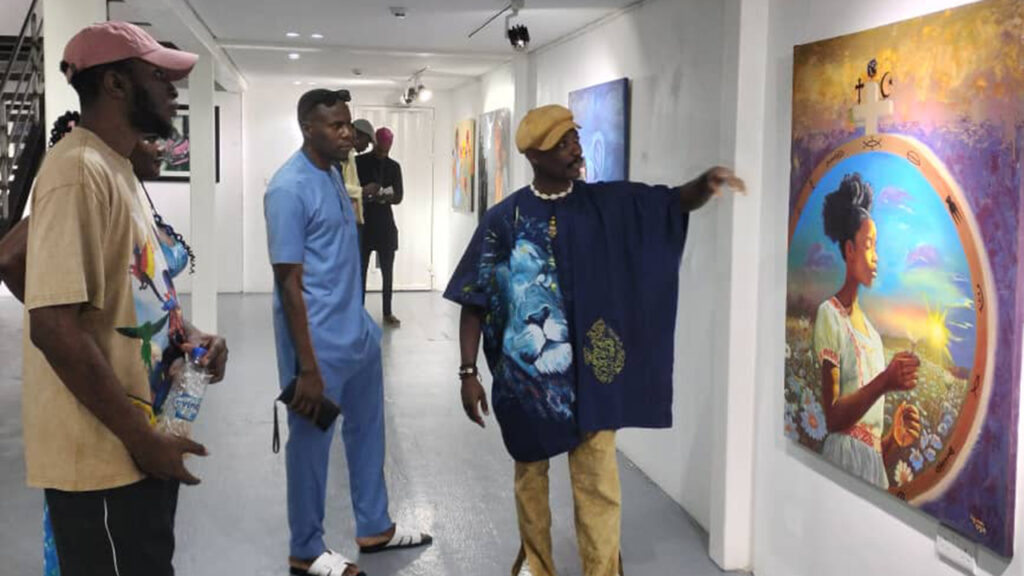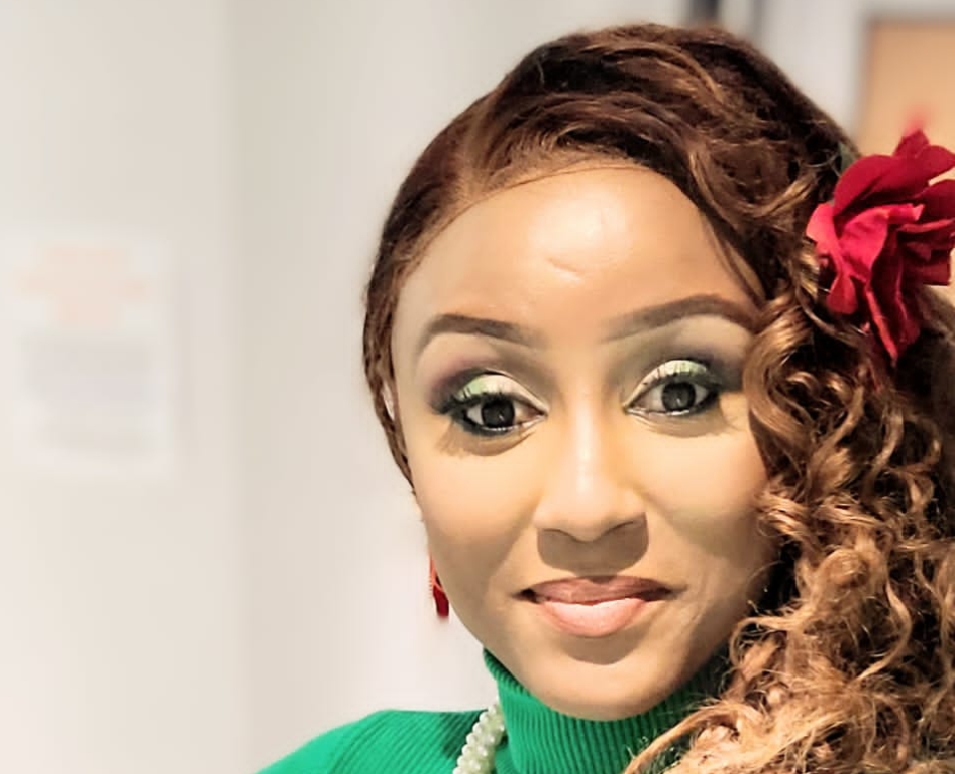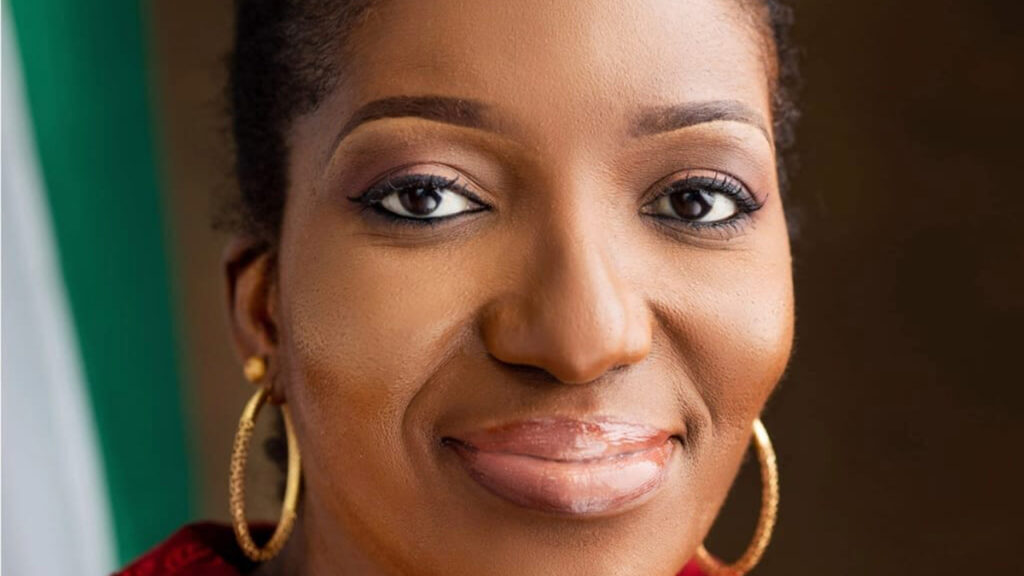
With background in banking and marketing, Tomilayo Aluko is the head of Corporate Communications and Marketing at Central Securities Clearing System Plc. Prior to joining CSCS, she was head of customer experience for wholesale banking at Access Bank. Her experience and expertise have been honed through years of working with medium and large corporations across various industries, where she has been instrumental in driving successful marketing and brand management strategies.
Aluko holds a BA in International Communication from the American University of Paris and another in Public Relations from Humber College in Toronto. In addition to her corporate work, she is a certified life and strength coach, specialising in personal transformation and leadership development. Passionate about helping individuals and organisations achieve their full potential, she tells TOBI AWODIPE the importance of communication in developing the country’s economy, how effective communication can drive good governance and why everyone must embrace personal branding.
You have had a long and illustrious career, take us briefly through your journey?
I’VE had almost 17 years of an exciting career journey. I started my career as a research analyst in 2006 and in 2007, joined Silverbird Group as Corporate Affairs Manager. I later joined DDB as Client Relationship Manager where I prepared strategic document and executed strategies for projects like MTN, Etisalat, 21 Days of Y’ello Care, MTN FIFA 2010 Consumer Promo strategy, Go-to-market strategy for 3.5G Data card and MTN Brand Foundation exercise with DDB SA and so on.
I have served as Chief Operating Officer at Olusola Lanre Coaching Academy, Corporate Affairs and Communications Manager at Kinetic Sports, Principal Consultant at The Boutique Brand Communication Company before going into banking as Head Total Quality management (TQM) Wholesale Banking, Access Bank. Currently I am the Head, Communications and Marketing Department at Nigeria’s premier financial market infrastructure, licensed to carry on the depository, clearing and settlement of all transactions in the Nigerian Capital Market.
What made you decide to leave banking for branding and communications fully?
I missed my first love. I love storytelling; it comes naturally to me. I love building stories around unlikely topics like the capital market, which has contributed to my broad experience in managing brands across different industries. A lot of people see communication as a soft skill, not realising how much it directly affects the bottom-line of a business. All the great brands we have today are where they are because they have effectively created and communicated a strong brand story, and that is what I love doing.
I have my background in Communications from two universities and I have also, at some points during my career as mentioned earlier, been actively involved in branding and communications. I would say I missed it so much I decided to dive into branding and communications fully.
In your opinion, how can communication be used to develop Nigeria’s economy?
There’s truly little, credible information about the state of the economy from the horse’s mouth; what you have mostly are opinions of experts and non-experts on social media and everywhere. This leads to misinformation about the economy and creates confusion. A government might even have a good strategy, but if you don’t carry people along with effective communication, you can’t create the synergy needed for your strategy to be effective and boost the confidence of your people in the economy, which is also important for the economy to prosper.
So, first things first, engage the people with an effective and transparent communication strategy that creates awareness of economic issues, gaps, and opportunities. Inspire action by connecting and promoting dialogue and collaborations between stakeholders and economic players. Inspire the required behavioral change in people that will foster economic growth and give the marginalised a voice and avenue to engage in what affects the quality of their lives and living.
What are some of the biggest misconceptions people have about corporate communication?
That it is a soft skill or not data driven. That it doesn’t directly affect the bottom-line of an organization. Communication is not a ‘nice to have’, it is a necessity that significantly affects the bottom line of any organisation.
These days, everyone claims to be into communication, what do you think sets experts apart in this field?
Communication is steeped in methodology and results. Anyone can communicate, but not everyone can communicate effectively and build communication strategies that affect the bottom line of organisation they represent. What makes that difference is the educational background and years of expertise in learning and understanding how to use communication to effect change.
In light of recent happenings in the country, how can effective communication drive good governance at all levels in Nigeria?
Transparency is key. The functionality of a communication strategy is steep in transparency; people get behind what they know. You will see in a lot of the manifestos of the candidates running for office, they are promising effective communication and transparency.
In order for good governance to resonate with the citizens of the country, it is important to communicate and be transparent, because when a government has a core value of transparency, it holds that government to a certain level of responsibility and accountability.
In what ways can communication be used as a bridge between the government and its people?
People want to be heard; they don’t want to be spoken to. They want a two-way communication. They want to feel like their concerns are the concerns of their government. Communication is a major bridge that allows people to air their grievances and allows the government to share its step-by-step solutions to these grievances assuring the people that they are being heard and acknowledged.
As the government executes its solutions, it is also paramount to carry the people along and show them that you have executed on your promises. These will bring a government closer to its people.
A lot of SMEs and organisations suffer from proper communication with staff, which leads to friction. In what ways would you suggest this could be corrected?
It is embedded in the culture of the organization; culture is a collective effort of everyone involved in that organisation or SLA. So, if it is part of your core values as an organisation to communicate effectively, then people will hold you up to it. Always go back to what your core values are and as leadership, consistently assess if you are living up to what you promised your staff.
People don’t want to be taken for granted or see you saying one thing and doing another. So, continuously assess and commit to your core values and culture as an organisation. Continuous assessment will also help you develop new strategies to improve your communication as an organisation.
What importance do great communication channels play in implementing marketing strategies?
It plays a significant role. Your target audience determines your channels, and your target audience also determines the style and language used in the communication process. Channels are very important in creating a communications strategy.
If you have the right message on the wrong channel, then you are meeting the wrong audience and your entire communication effort becomes futile. It is therefore important to ensure that your strategy is streamlined to ensure the use of the right channels to reach the right target audience.
As one who has served in different industries, what common communication challenge(s) have you observed in the corporate world?
Trusting the communication strategy process. A lot of times, communication strategy is a long-term game and people always want immediate results, and because they want immediate results, they are not patient enough to see the process through. ‘Rome was not built in one day.’ The brands we revere today have been many years in the making. However, when we look at these brands as case studies, we forget that there is a process they have gone through, mistakes have been made, they must have had to realign, reassess, evaluate at many different points for them to be spoken about today. What I find common to most organisations that I have worked with is the lack of patience to see the strategy process evolve.
How important is personal branding?
If you don’t tell a story about who you are, someone else will tell it. Personal Branding is very important; people must have an idea of what you stand for, especially if you are going to play in a field where you will be sought after. It is a way of sharing your values, mission, vision, and your objectives in life with the public. I find personal branding quite important, and I do not mean it as self-promoting.
Personal Branding is different from self-promoting, and I think it’s one of those things we might have gotten wrong, especially in this generation. There is a fast-paced self-promoting culture that has been prevalent in the past few years. I am not sure self-promoting is sustainable, but building a personal brand is something that should be sustainable and replicable, so it’s not a fluke.
However, when you self-promote, it means you are relying on something that you must sell at that given point and that does not run deep to the character or core values that you have. Generally, for a more long-term top-of-mind awareness I would recommend personal branding.
You are passionate about helping younger women coming after you; in what ways are you doing this?
Yes, I am passionate about the younger generation, and I actively reach out to them through different circles. I am also a life coach and in my spare time, I take time out to coach a group of women. I am also a Gallop Certified Strength Coach and in my spare time, help women to identify their strengths, figure out things that are important to them and the things that make them unique. I also volunteer to mentor for a few organizations at home and abroad.
Asides mentoring, what other effective method can be used to bring and grow more women in this field?
I find that informal settings are good for gatherings and progressive conversations. I like to put myself in scenarios with the younger generation and hear them speak their truth without interruption. In doing so, they engage more, and are more open and welcoming.
I also think applying the right mentorship strategy is key. Mentoring is usually seen as top-down but there are different stages of mentoring, there is peer-to-peer mentoring and down-up mentoring. Applying the right strategy is also key.
What career or personal challenge has threatened to derail you so far?
Bureaucracy! I don’t like being in systems where the work is hard to get done, because there is a lot of bureaucracy within the system. However, I also understand that governance is put in place to ensure things work in a certain way. So, as I continue to grow and apply more of myself, I find innovative ways to surmount this challenge and prevent it from interfering with my productivity.
What does a typical day in your life look like?
I wake up in the morning, work out, take my kids to school, I go to work. Leave work at a certain time, have my reflective time where I read and just reflect. I deliberately spend time with my kids to find out how their day went. I enjoy reading, swimming, traveling, and talking with like-minded people.
If you were speaking with a young woman coming into this industry, what would you tell her that would help her succeed?
Brace yourself, you need to constantly prove yourself but don’t worry about it. Be patient and be willing to learn. Always keep an open mind. Finally, make sure you execute. An idea is only just an idea in your mind. You need to execute and in doing so, not only will you prove yourself to others, but also you will discover you have zero limits.

